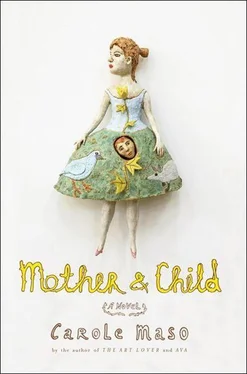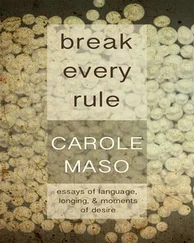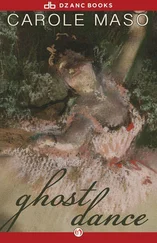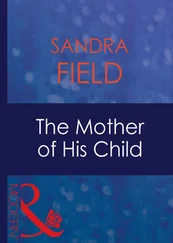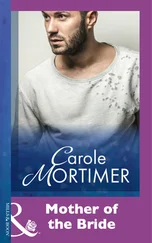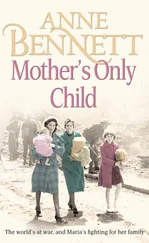Little Flore, the mother whispers, and the tiny hominid slowly shuffles out from beneath a Trufulla sprig.
Such were the days when the child was away, and the mother was left to her own devices.
ALL THE MOTHER wants some days is to go back there, but she does not know how. Sometimes she cannot see or think about anything else, not even the child, whom she loves with every fiber of her being.
Though she is drawn there, she is drawn against her will. Layers of ghosts enfold her, gauzy as a Halloween tale. The mother is compelled back, but she can’t get back far enough, and so she must stand forever on this windy hill overlooking the blueberries, neither here nor there, next to the vibrant, streaming world.
THE CHILD SKIPS home from her choral practice. The big black bat flew back! The mother ran to see. The big black bat flew back!
Where? Where? the mother said, running to the umbrella stand.
It’s our Enunciation Exercise, the child said dreamily. For chorus! Say it with me. The big black bat. .
But in fact not a single bat came back to the Valley the following spring. The mother could not explain why, but it made her inconsolably sad. The solitude now was mounting. They waited for a new sign, but no sign came.
SHE THOUGHT OF the prairie vole. When isolated, a prairie vole had increased levels of oxytocin, its heart rate went up, and the size of its heart increased over a four-week period as it tried to stave off isolation. Little prairie vole, the mother called, and it crawled out shyly from beneath a prairie leaf.
SOME DAYS THE mother is a very dim light in a jar. At times like these, all the child can do is press her brilliant eye up against the glass, lumbering, impossibly large, her warm hand encircling it. Glass was a miracle — that is what the mother always said, and at once the child thought of the flowering of fire and water and sand and the work of human hands, and this jar — the glassblower’s vessel. What was she signaling with her flicker? Perhaps the mother had come to say good-bye. Perhaps it was not possible to die all at once. What if she had made a bargain? Perhaps a deal had been struck, and she had been allowed nine years with the child. But there were now only a few days left until her tenth birthday. Soon Aunt Eloise would be by with the beehive cake once more and the next year of the child’s life would begin.
THE CHILD WONDERS sometimes where all the guardian angels have gone.
No one, the child says that night, will come and steal you while I’m sleeping, right?
No one will hurt you with a sword.
No one will put you in a fire.
No one will run you over in a car.
You won’t get lost in the woods. Tell me you will find the way out. You can always find the way out.
DARK ENERGY SUGGESTS one day everything will be black. This calmed the mother. The commotion would be over at last. The universe was expanding beyond all human understanding; the child tugged at her sleeve.
CECIL PETER HAD said to hang human hair from the bushes and sills to repel the animal kingdom, and the mother had dutifully done what he had said. Perhaps she had followed that advice too well, for now she longed for the animals; their teeth, their fur, their claws, their talons. Not this. Overnight they seem to have disappeared. She was sealed off, losing sensation. Collecting locks as they fell from the executioner’s chair, she had put them on the sill. Now she went from room to room and removed them, the tresses of the child, and the tresses of the war dead, and she wept. She would donate those tresses now to the Virgin for her Dormition Wig.
EASTER CAME EARLIER than it ever had in any of their lifetimes, and ever would in their lifetimes again. Never would it be celebrated as it was this year, in the winter, and in the dark. At the sunrise service it was twenty-four degrees by the Fahrenheit thermometer, and the motley congregation built a bonfire next to the Virgin, motionless in her grotto. The mother wrapped the child’s head in a woolen shawl, and all remarked that she looked exactly like the Magdalene.
Without the gaiety of flowers or springtime, they could better feel the austerity and gravity of the situation. They traipsed around the frozen fire and someone maneuvered the boy with no legs in his wheelchair over rock to the altar. The women had gone to the tomb.
Why are you weeping? The words could be heard through the darkness.
We do not know where the Christ’s body has gone! The tomb is empty, someone in the dark pronounced, and the women sighed, and someone urged the child toward the fire, and the mother pulled her back from it. There was a legless boy, and a rasping death head, and the weepers, and the Toothless Wonder. But the child knew that the disappeared Christ would soon enough appear to the people again as he had promised, and the sun would begin to rise. Everyone was frozen, despite the promise of the sun. No one was warmed, the temperature had not changed, and the fire was dying. When Jesus finally appeared it was to the women, and their heads were covered.
On a bare branch the mother saw a single bird’s silhouette.
Do not touch me, He says, for I am not of this world— or the other . Everyone gasped! The child’s arm remained extended. They were being battered by beauty.
At once, unaccountably, there were a thousand stars pouring from the sky like diamonds. The moon had been full and the sky dark when they arrived and a bonfire burned, but as the sun slowly rose, the moon sunk, and the sky, a dome above them, seemed divided for an instant, one half of the dome dark, one half light, until light began to spill and bleed into the darkness, and all at last was brightness, a translucent blue, and the full moon falling behind the child’s head — a perfect halo. They broke the bread and took the cup, and the mother thought of the Burning Man she had seen in the fall and the quiet ashes in the ground.
Austere as it was, and as unnerving, the boy with no legs felt there had never been a better Easter service — and the mother had to agree.
ON GOOD FRIDAY the child’s fish, Miss Tippy, had died and was outside in a plastic bag awaiting burial in the Children’s Garden. What could be better, the child thought, than Miss Tippy on the third day, floating and gold above their heads?
THE MOTHER REMEMBERED when the child was small and her head was as round as a planet and she would fit perfectly in the mother’s lap. The child’s feet came to the mother’s knees and it seemed to her the most miraculous of designs.
The Slung Hip Configuration, too, seemed a perfect fit even though in the time that the child and mother made that perfect Slung Hip Configuration, the mother seemed to be always lying prone and crying. The mother could not be saved by the beauty of design, but her tears kept the child alive. They were flammable, and so protected them from the evil that everywhere surrounded them.
Inside a circle of flame she kept the little baby safe, but to this day when the mother sees a baby, she runs in the opposite direction because she does not want to ever feel that way again.
WHEN THE MOTHER looked back, the bird was gone. She longed suddenly for the day of Phish and Phosh and the Ovenbird. The covered nest. The beauty of the Father. The Easter story had moved her as if she had never heard it before. She thought despite its grievous shortcomings, any religion that could conjure such a beautiful story was certainly worth something. When Christ rode into Jerusalem, he rode on a donkey, which meant he came in peace. If you rode on a horse you would have come to conquer and in war.
The mother was filled with sorrows. Four thousand soldiers this March were dead — and five years had passed.
WHEN THE BABY sat on her lap with her little legs reaching the mother’s knees, the mother’s mouth would fit perfectly at the back of her skull and the mother would take the opportunity to cushion the baby’s round head with kisses.
Читать дальше
